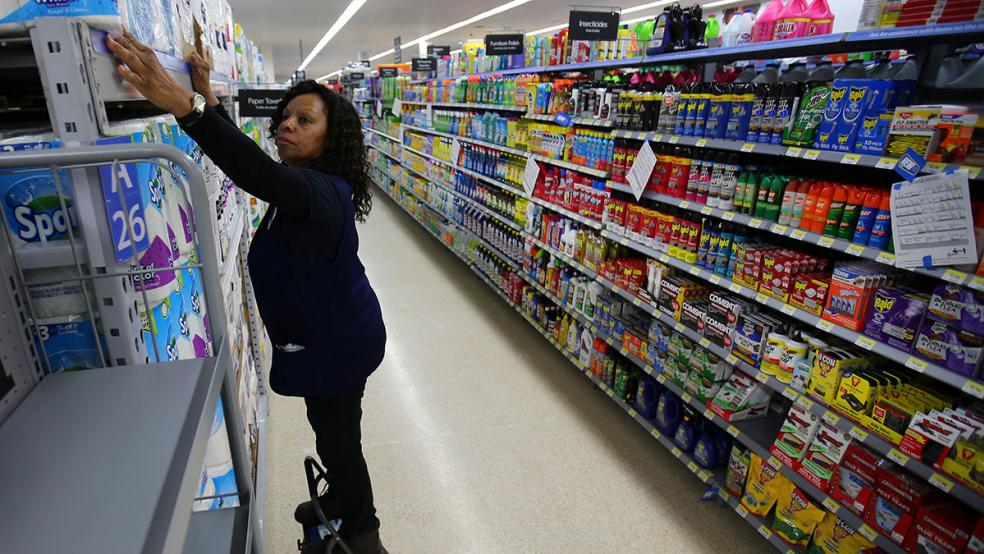The number of retailers filing for Chapter 11 bankruptcy protection is headed toward its highest annual tally since the Great Recession.
Nine retailers have filed in just the first three months of 2017, according to data provided exclusively to CNBC from AlixPartners consulting firm. That equals the number for all of 2016. It also puts the industry on pace for the highest number of such filings since 2009, when 18 retailers resorted to that action.
Related: Is This a Sign of a Looming Stock Market Correction?
The rising number of retail bankruptcies comes as consumers are making more purchases online, and shifting their spending toward travel and other experiences. Meanwhile, the supply of physical stores continues to outweigh shopper demand, putting pressure on the industry's profits.
But it isn't just those factors pushing retailers out of business. More than half the filings year to date have come from retailers that were previously purchased by private equity firms, according to AlixPartners. That's up from an average 31 percent over the prior five years.
These transactions, known as leveraged buyouts, occur when a private equity firm uses a combination of equity and debt to purchase a firm — saddling the company with debt in the process.
The industry's pain is far from over. The number of retailers on Moody's distressed list is also at its highest level since the Great Recession, as several other chains that were targeted by private equity firms struggle to turn around their businesses. They include names like J. Crew and Claire's Stores.
Related: The Trump Administration Thinks We’re Already in a Trade War
"It's just kind of this perfect storm where things are coming together, and it's going to continue for awhile," Deb Rieger-Paganis, a managing director in the turnaround and restructuring practice at AlixPartners, told CNBC.
Private equity's role in retail bankruptcies often boils down to the firms' operational strategies. Many of these companies seek out undervalued retailers and look for costs to remove from their businesses. As part of that process, they often fail to invest sufficient money in critical areas like the brand's store fleet or digital operations, Rieger-Paganis said.
Problems at these types of distressed chains are about to get more acute. Already struggling to bring in cash, the gradual rise in interest rates will make it tougher for them to refinance their debt as it comes due.
"This is going to be a cycle for quite awhile," Rieger-Paganis said.
In addition to the nine retailers who have already liquidated or are working to reorganize, Payless and Bebe are expected to add their names to that list.
Related: Consumer Confidence at a 16-Year High: What Are Americans So Excited About?
A spokeswoman from Payless declined to comment on a recent Bloomberg report saying the chain will soon close up to 500 locations and file for bankruptcy. A spokeswoman for Bebe, which said earlier this month that it is exploring strategic alternatives, did not immediately respond to CNBC's request for additional information.
Regardless of their reason for filing for bankruptcy, more retailers who enter Chapter 11 are ending up in liquidation. That's because of a change in the bankruptcy code in 2005, which trimmed the timeline retailers have to gain approval for sale or reorganization.
While they used to be able to spend more than a year in bankruptcy, they now have 210 days to decide whether to keep a store's lease. Because going-out-of-business sales can take 90 days to run, senior lenders often try to make that decision in as little as 120 days.
As chains liquidate or restructure, their store footprints are eliminated or whittled down. Aeropostale, for example, shuttered nearly 600 stores in its reorganization last year. Meanwhile, Sports Authority's 460 locations went dark after it liquidated.
Year-to-date Chapter 11 filings:
- Gordmans Stores
- Gander Mountain
- General Wireless Operations (formerly RadioShack)
- HHGregg
- BCBG Max Azria
- Michigan Sporting Goods Distributors
- Eastern Outfitters
- Wet Seal
- Limited Stores
But it isn't just bankrupt retailers chopping off real estate. Macy's, J.C. Penney, Sears and Kmart are in the process of closing nearly 400 stores, as smaller chains like GameStop and Abercrombie & Fitch take similar actions. Those vacancies are likely to have ripple effects through the industry, Rieger-Paganis said.
"People don't like to shop where there's a lot of vacant space," she said.
As the industry contracts, incumbent retailers like Kohl's and Target are investing in their physical shops in hopes of grabbing more market share. Between Macy's, Penney's, Sears and Kmart, Fung Global Retail & Technology estimates some $2.5 billion in sales will be captured by competing retailers.
Yet for traditional chains to grab their piece, they'll have to beat out the likes of Amazon. That could prove tough for these retailers, which have historically been slow to adopt change.
After attending last week's Shoptalk conference in Las Vegas, Citi analyst Paul Lejuez told investors that it's "easy to be impressed" by some of the technologies now available to retailers. However, the implementation of these technologies is likely to be slow and weigh on chains' profitability.
"The bottom line — it is hard to leave the Shoptalk conference feeling any better about the specialty retail and department store group," Lejuez said. He did, however, add the need for a physical store presence is "still apparent."
This article originally appeared on CNBC. Read more from CNBC.
2017 is proving to be good so far for billion-dollar start-ups
Here are some April Fools' pranks tech companies are pulling online
Homebuilder stocks track for best quarter in more than 2 years




